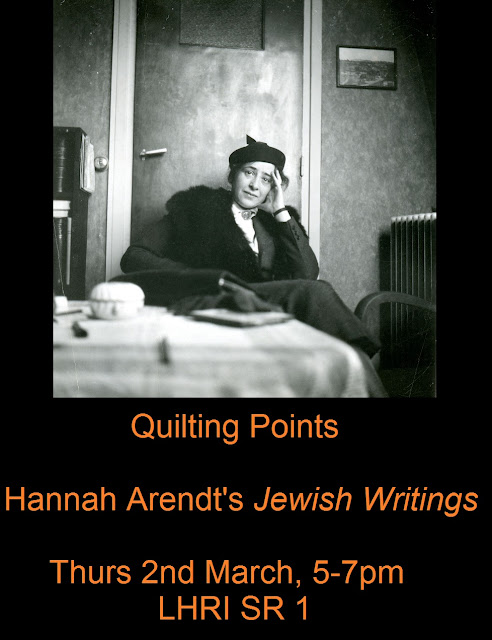#9 – 02/03/17: The Jewish Writings

E ven if the Jews were to win the war, its end would find the … achievements of Zionism in Palestine destroyed … The “victorious” Jews would live surrounded by an entirely hostile Arab population, secluded inside ever threatened borders, absorbed with physical self-defence to a degree that would submerge all other interests and activities. — Hannah Arendt, 'To Save the Jewish Homeland' In this session we will explore excerpts from Arendt's so-called 'Jewish writings'. Starting with her incendiary essays from the early 1940s, we will trace her development of ideas about the struggle for Jewish emancipation, culminating in the prophetic 'To Save the Jewish Homeland'. These writings bring out some of the questions of political violence and revolution that we have examined in previous sessions. They also document Arendt's views regarding Jewish nationalism as well as the Israel and Palestine conflict (which, by the time of 'To Save the Jewish
